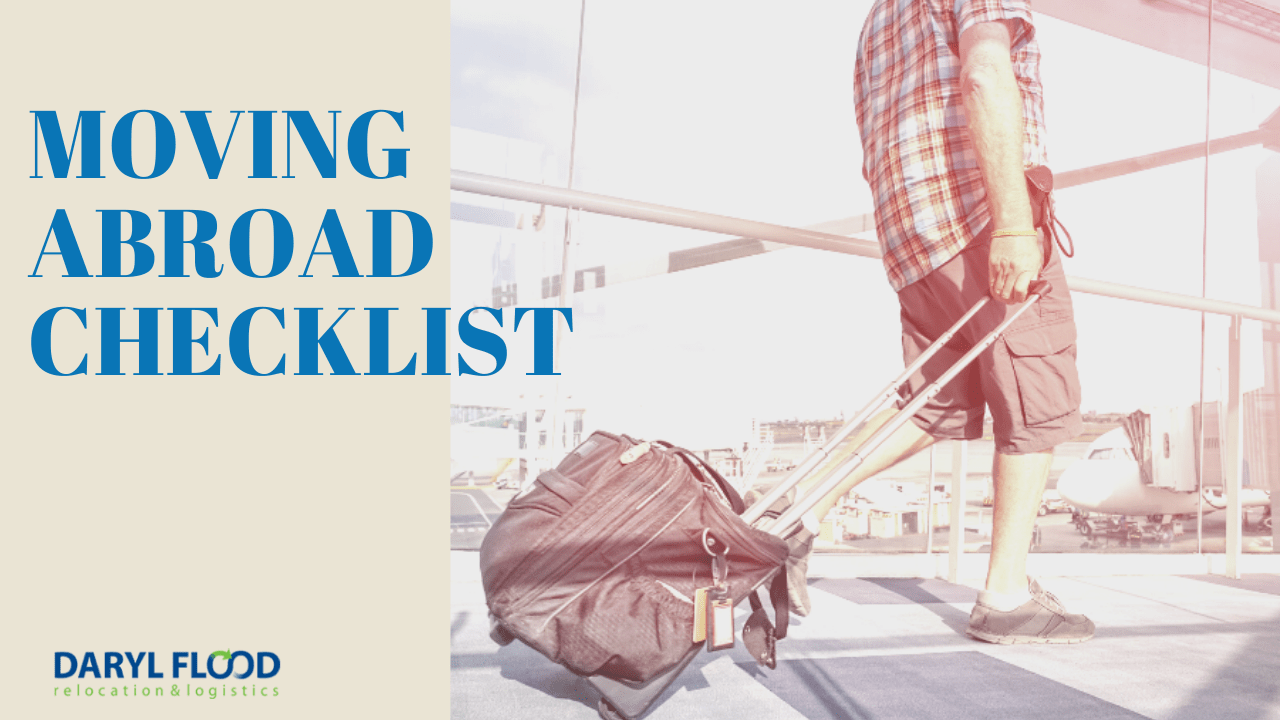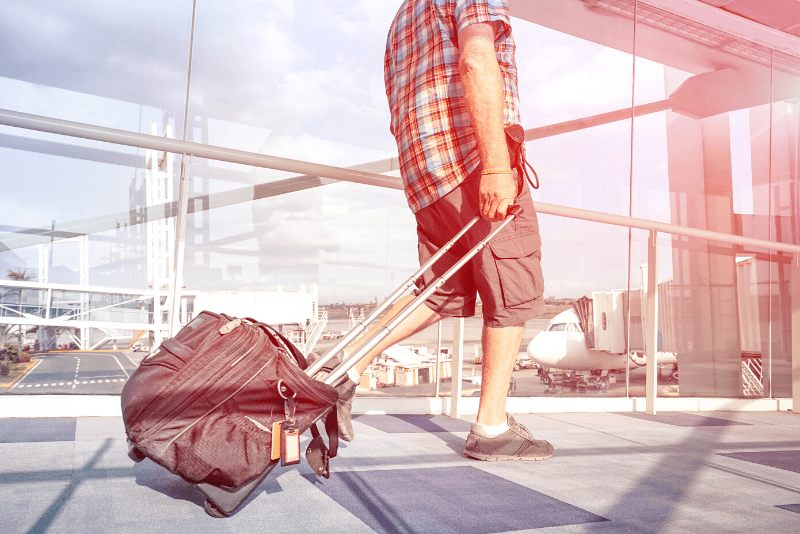Moving Tips & Resources
Moving Abroad & International Relocation Checklist
Few things are as exciting as having an opportunity to move abroad to live and work in another country. For many people, it is the adventure of a lifetime.
And, just as with any move, whether that’s across town or around the world, there is a lot of planning and organizing that needs to take place as early in the process as possible.
There will be a lot of red tape and moving parts, so it’s a good idea to have several checklists that will keep you on track and prevent important things from falling through the cracks.
First and foremost, when moving to a foreign country, you need to be aware of the specific legal processes and procedures that must be followed, and the timeframe that’s involved. This will vary from country-to-country, but generally speaking it can take anywhere from 3 to 6 months to complete.
Regardless of which country you are moving to, the following checklist will provide you with a broad overview of the primary elements that will be essential to you as you begin your journey.
1. Passport
This is the single most important requirement. If you are a U.S. citizen, you will need to have a valid U.S. passport in order to travel outside of the country.
If you don’t already have one, you will need to apply. Routinely, the processing time will take 6 to 8 weeks, but you can pay an additional fee to have the process expedited so that the timeframe is only 2 to 4 weeks.
Click here for more information: U.S. Passport Information
2. Visa and Work Permit
The visa is an official travel document that will allow you to stay in a country for a specific purpose and for a designated period of time.
It will be authorized and issued by the destination country, and since most countries have several different types of visas, it is critical that you have the right one. In order to work in another country, you will be required to obtain a work visa.
The best way to find out the requirements for working in another country, is to contact the consulate office or embassy of the country that you will be moving to.
You can visit the U.S. Department of State website and search for information by country, which will include links to the embassies located in the U.S. From there, you can contact the embassies directly.
Click here for more information: Country Information
3. Documentation
There are several vital documents that you will need to take with you when moving abroad. Those include:
- Birth certificates
- Social security cards
- Driver’s license
- Medical records
- Marriage certificates
- Adoption records
- School records
- Child custody records
- Insurance documents
Be sure to make additional copies of all of your records, just in case you misplace anything.
4. Research New Location
This one probably goes without saying, but you are going to want to do a lot of research about your new location. This will help you to be best prepared when you arrive.
A lot of information can be found online, so spend some time trying to get a virtual lay of the land, and understand housing options, and different aspects of the culture of the country.
This can be a fun activity to include your children in too, because it helps to create excitement about the move.
5. Hire a Moving Company
If you are moving abroad through your employer, they will likely put you in touch with a professional moving company that handles international moving.
If not, you will need to go through the process of interviewing and hiring a moving company on your own.
Your personal situation, and how long you anticipate living abroad will dictate how much of your personal belongings will be moving with you.
If you are only planning to be away for a year or two, a good option might be to store many of your belongings.
For more information, please click here: International Moving
6. Housing
This too might be something that your employer will be helping you with, so be sure that you know all of the benefits that will be provided to you as part of your move. You will typically work with a real estate professional or consultant who will help you locate housing.
This requires some planning ahead though, which means that you might also need temporary housing or a hotel room until your permanent housing arrangements can be made.
So, make sure that you have a place to stay before you arrive.
7. Make Travel Arrangements
It’s always good if you can travel to your new destination before the move. If not, then again, the more prepared you are on the front end, the better.
Generally speaking, when it comes to booking international flights, you might want to get that taken care of at least three months in advance.
International travel can be quite expensive, so be on the lookout for any deals that might be out there.
Additional International Moving Checklist Items
While the list above addresses the big-ticket items, here are some of the other items that
should be on your checklist:
- Packing and organizing. Decide what will be going with you and what might stay behind or get sold or donated.
- Immunizations. Visit the World Health Organization website for country-specific immunization recommendations.
- Turn off utilities. Be sure to turn off or transfer utilities when you move out of your current property.
- Mail forwarding. Set up mail forwarding so that you will receive your mail in your new location.
- Banking. You can set up an international bank account through various financial institutions.
- Cancel memberships. Don’t forget to cancel local memberships.
- Medication. Make sure that all of your prescription medications are up-to-date and with you for the journey.
At Daryl Flood, we know that moving abroad can be an overwhelming experience. There is so much to think about, plan, and do.
But we are fully committed to providing you with all of the answers and support that you need to ensure a successful move. are always here to answer your questions and give you professional advice you can trust.
Please contact us anytime for information about moving anywhere in the world.










